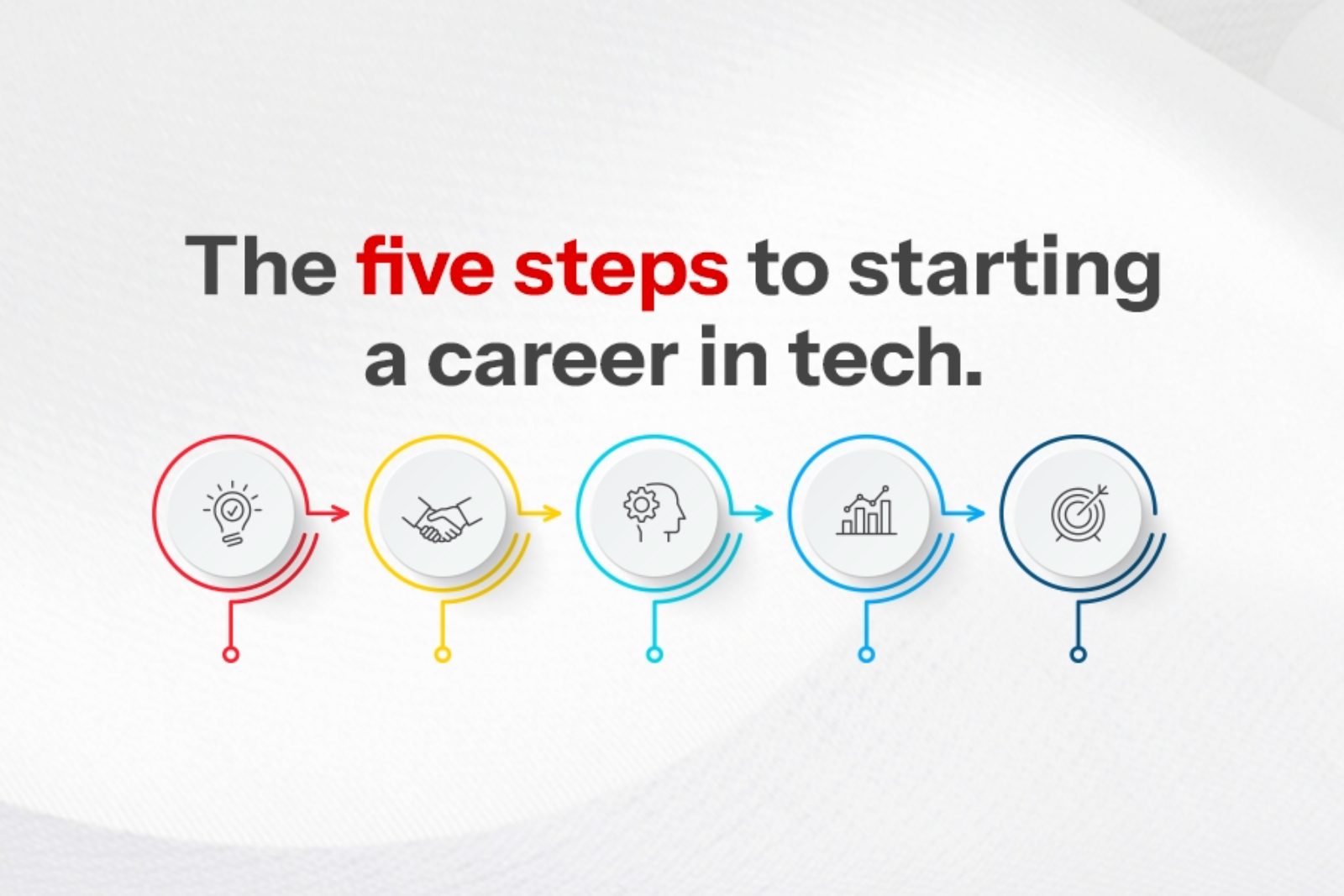Technology is part of life now. Little wonder the $1.6 trillion industry has all eyes on it, ready to take a piece of the pie for both techies and non-techies alike. So if you’ve ever wondered where to start, you’re not alone.
With innovations and companies emerging in tech every day, it can seem daunting trying to carve out your space. However, with some strategic planning and effort, nearly anyone can launch a fulfilling and stable career in tech.
So in this article, we are going to take a look at some of the strategic steps you can adopt now to increase your chances of securing that tech job.
Steps to start your career
1. Decide Which Area of Tech Interests You
The first step is narrowing your interests, as “tech” encompasses everything from building hardware to scaling systems through code to data analytics.
Do you want to create consumer-facing apps and products? Then look into front-end development and UX design. Are you interested in building the back-end architecture that powers websites and ensures speed and security? Back-end development could be up your alley.
If you enjoy optimizing systems and gleaning insights from data, data science or analytics may be fitting. Those with an interest in helping customers and fixing tech challenges may thrive in technical support roles. And these are just a few of the many tech career options out there.
Talk to professionals in roles you may be interested in pursuing or you can send us a message here to speak to our consultants. Understanding day-to-day responsibilities will help determine what tech niche appeals to you. Don’t worry about pigeonholing yourself either – many people switch tech roles throughout their careers as interests evolve.
2. Obtain the Right Skills
Once you choose a career path, get adept in the tech skills required to be a strong candidate. The good news? You don’t necessarily need a tech-related college degree, as many employers care more about your hands-on experience.
One of the best ways to build skills is to take online courses and certifications. For example, if interested in coding, take classes on languages like Python, Javascript, and SQL on platforms like Malhub. You can also gain experience by volunteering or freelancing, allowing you to apply learnings and create portfolio pieces.
Make sure to master both hard and soft skills. While domains require technical prowess, it’s also crucial to hone business and interpersonal skills to thrive in roles and move up the ranks.
3. Beef Up Your Tech Resume
When applying to tech jobs, your resume must clearly convey technical competencies. If you lack full-time work experience, spotlight projects and certifications that are relevant to the job instead of just work history.
For example, if applying for web developer roles, describe web projects you completed, detailing elements like languages used, features implemented, design choices, and technologies leveraged.
Be specific when listing skills and tools. For instance, instead of just putting “Adobe Creative Suite,” list individual applications you’re proficient in like Photoshop, Illustrator, and InDesign.
Also highlight your soft skills too – like analytical thinking, collaboration, and communication. You can bet that employers are always on the lookout for these on your resume.
And don’t forget to include volunteer tech work, freelance gigs, and internships. These help convey that you can apply abilities in real-world environments.
4. Build Your Professional Network
It goes without saying that Networking is pivotal when changing careers because so many roles get filled via personal connections before officially being advertised.
So, start with attending tech meetups and conferences to connect in person with fellow professionals. Reach out for informational interviews to gain career advice while expanding your network.
Use LinkedIn to find professionals working in target companies and roles. Follow company pages to stay on top of openings and opportunities. Follow tech thought leaders and influencers on sites like Twitter and Medium to immerse yourself in industry dialogue and culture. And regularly converse on forums and channels like Reddit, Slack, and GitHub where tech professionals gather. The more engaged you are, the more likely you’ll hear about unadvertised openings.
5. Prepare for Interviews
When applying for tech roles, you can expect highly technical interviews that assess hard skills. So, have answers ready highlighting completed projects you may have done
Prepare to explain details like project challenges and your solutions to them, technologies leveraged, key decisions made, testing and implementation methods used, and performance metrics like site traffic or data benchmarks achieved. All these demonstrate how you’d address issues faced on the job.
Also expect behavioral questions so have sharp responses ready highlighting times you successfully worked with teams, overcame conflicts, solved complex troubles, learned quickly, used logic to make decisions, and displayed resilience.
Here’s a protip; treat interviews as conversations. They are just focused on determining if you fit into the company’s culture, so come prepared with thoughtful questions showing interest and enthusiasm.


















2 Responses
Great read, I love it!
I’m loving it already